In the context of C-class sedans in Vietnam gradually losing popularity to SUVs/crossovers, BYD chose a different approach with the Seal 5 PHEV: external plug-in hybrid technology, strong enough performance and economical operating costs. The price of 696 million VND puts this model in the eye of a competitive storm, where the Kia K3, Mazda3 and Honda Civic are present, but the advantage in electric range and fuel consumption is a clear difference.
The technical highlight lies in the plug-in hybrid powertrain combining a 1.5L gasoline engine with a front-wheel drive electric motor, creating a total capacity of 209 horsepower. According to the announcement from BYD Vietnam, Seal 5 can accelerate from 0-100 km/h in 7.5 seconds, reaching a maximum speed of 180 km/h; running on pure electricity for up to 188 km per charge and providing a total operating range of 1,714 km, with a fuel consumption of 3.2 liters/100 km.
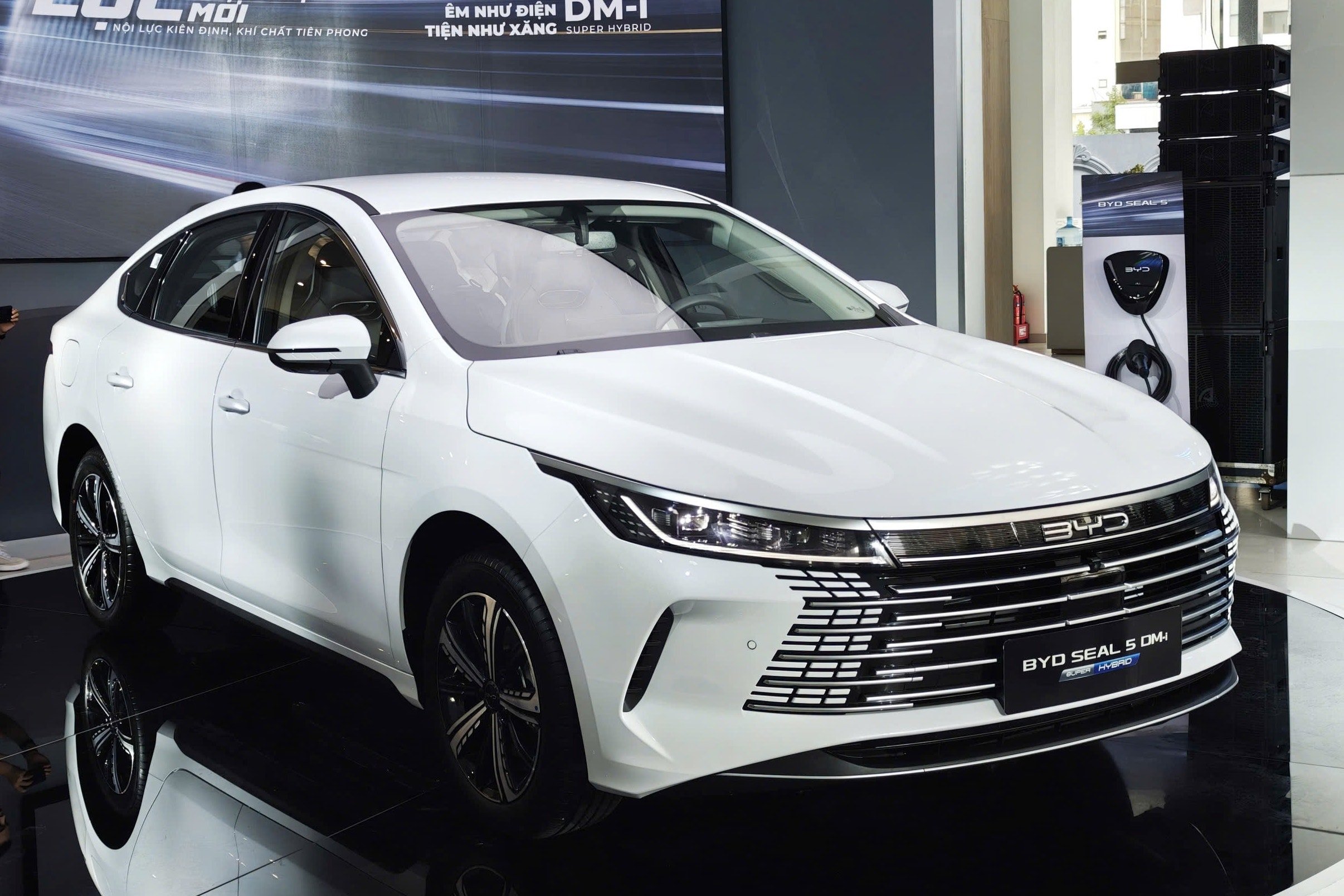
Distinctive design language, emphasizing aerodynamic efficiency
Seal 5 is 4,780 x 1,837 x 1,497 mm long x wide x high, with a wheelbase of 2,718 mm. With a total weight of 2,030 kg, this is the heaviest model in the C-class sedan group, understandable because the PHEV battery system adds weight compared to pure gasoline cars.
The front end impresses with a large grille, chrome accents and a horizontal LED strip connecting the central logo - a familiar identifying detail on BYD models. The large size of the radiator grille makes the front of the car look more aggressive than its brothers like Atto 3 or Han. On the contrary, the rear of the car has a sporty , neat style with a high-swept ducktail spoiler, combined with a rear light cluster that matches the front lighting design.
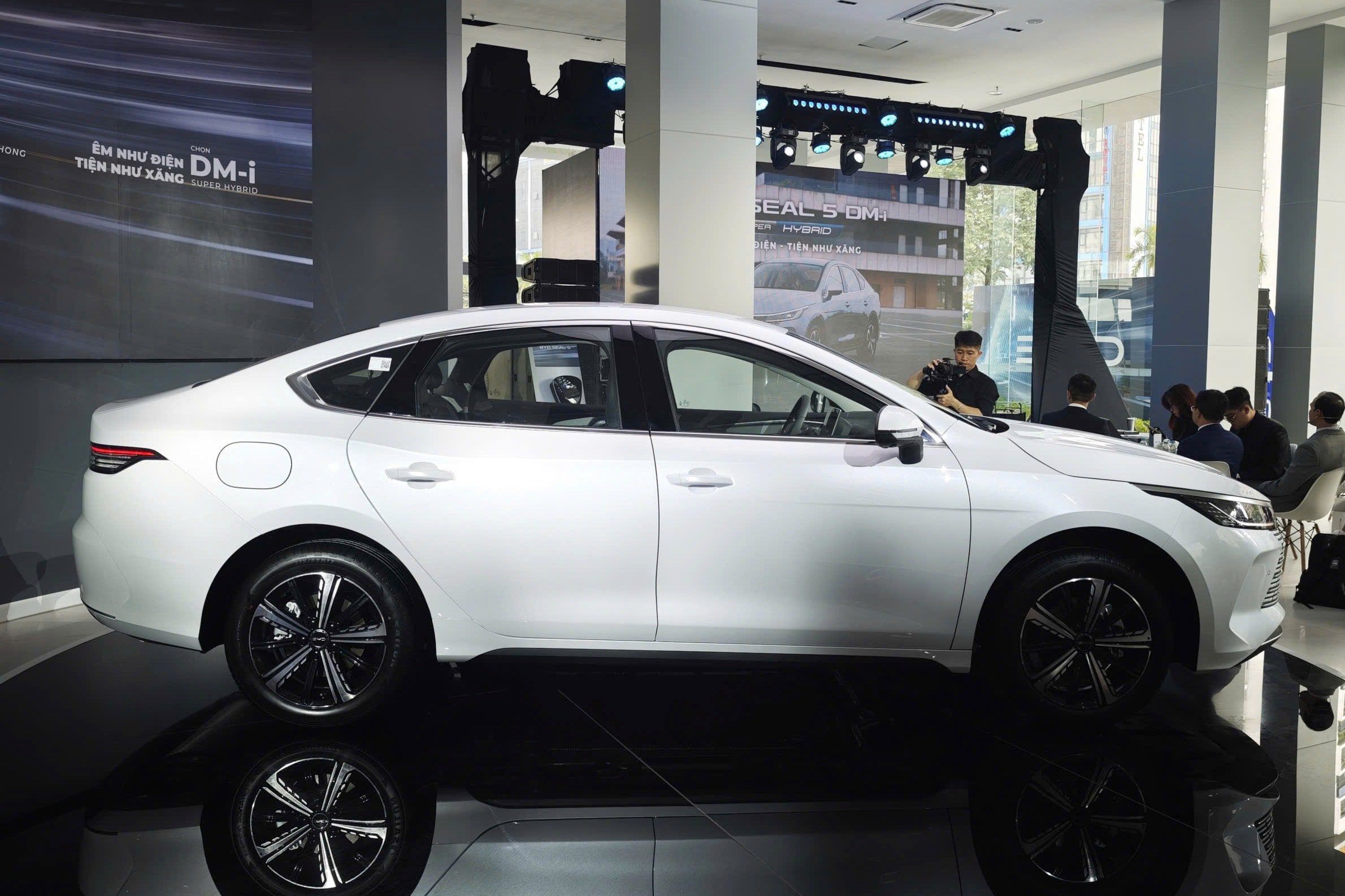
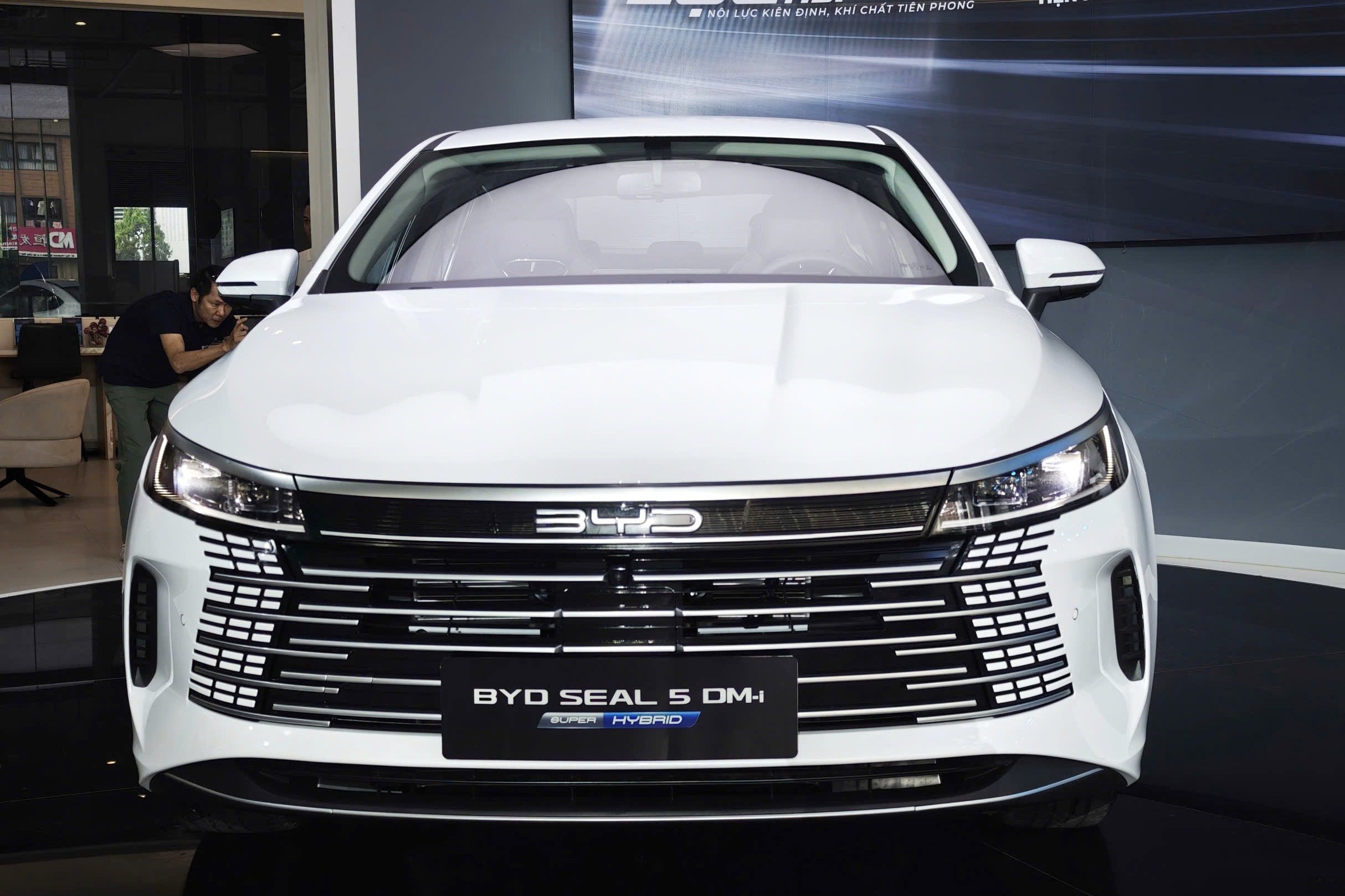
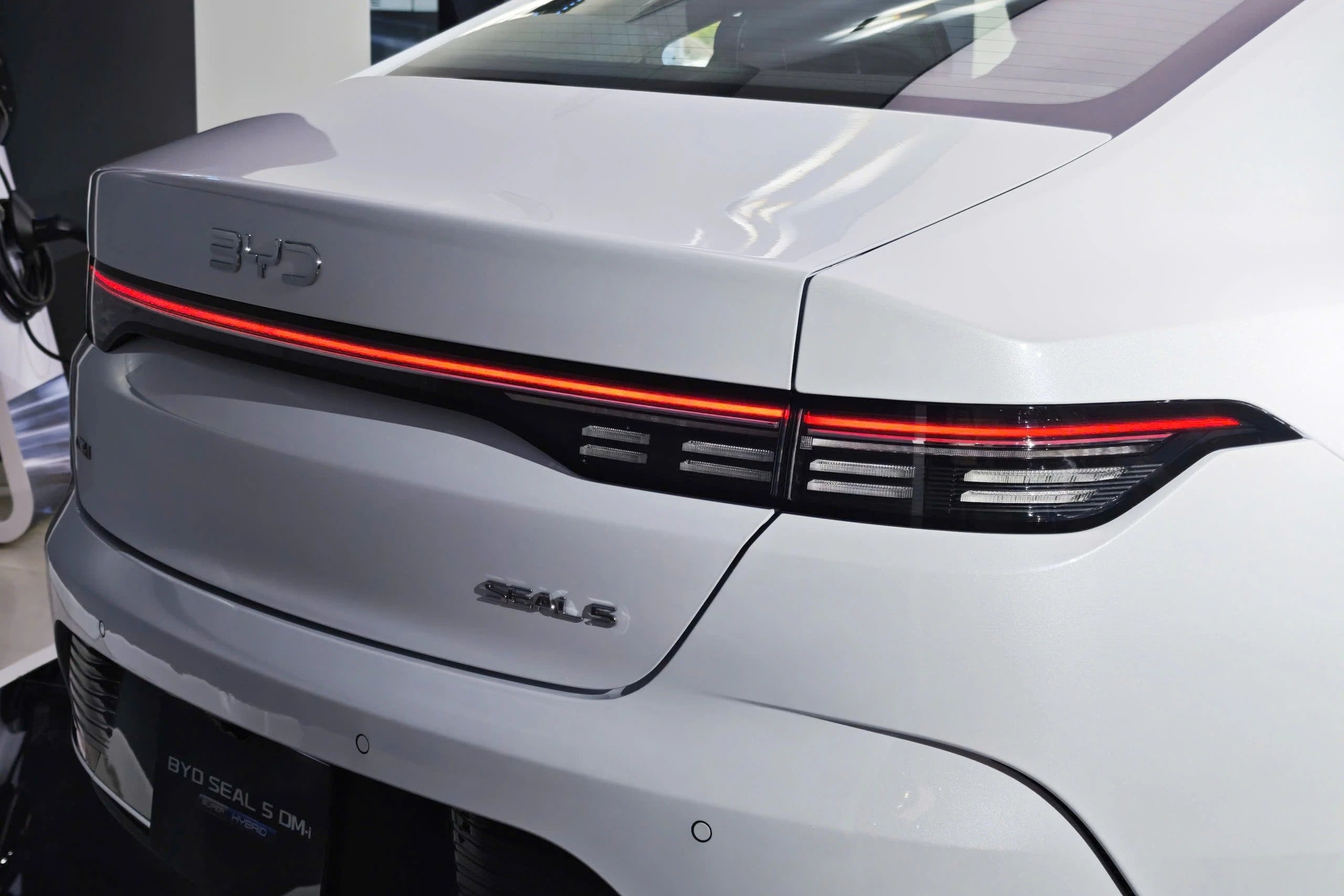
The 17-inch wheels with 215/55 tires balance comfort and everyday grip. Front/rear disc brakes are standard equipment in the segment. In terms of suspension, the car uses a MacPherson strut configuration at the front and a torsion beam at the rear – a popular choice, prioritizing durability and operating costs, while optimizing luggage compartment space.
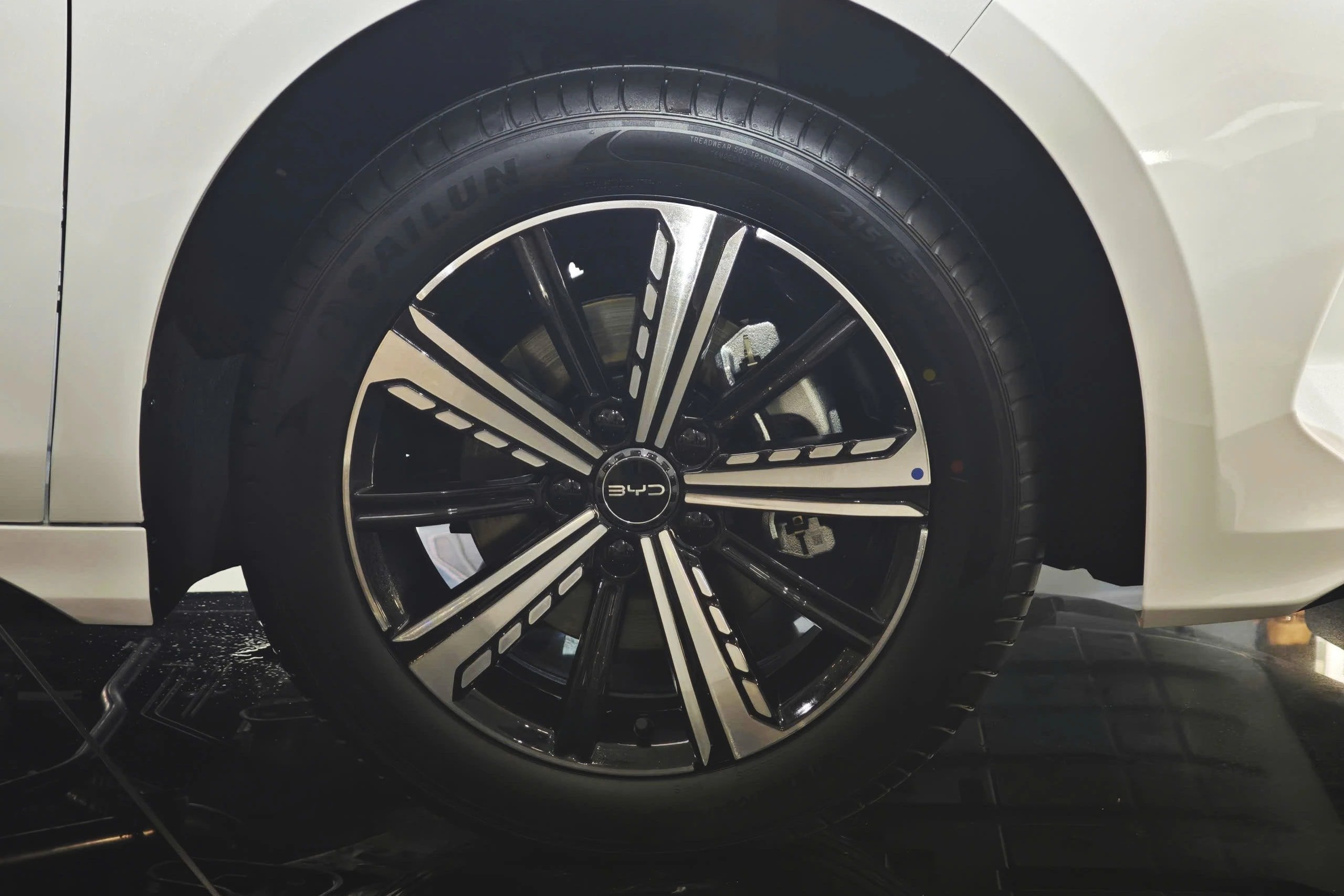
Minimalist cabin in a convenient direction
Inside, the Seal 5 follows a modern yet practical philosophy. The 3-spoke steering wheel combines with an 8.8-inch LCD dashboard that displays speed and core operating information. The center of the dashboard is a large entertainment screen, which acts as a control center for features.
The saddle area is less “showy”, instead there are large physical buttons neatly arranged, easy to operate while driving. The knob-shaped gear lever helps free up space, creating a spacious feeling for the center console. This approach aims for a consistent experience: reducing distraction, increasing intuitiveness, suitable for general users.
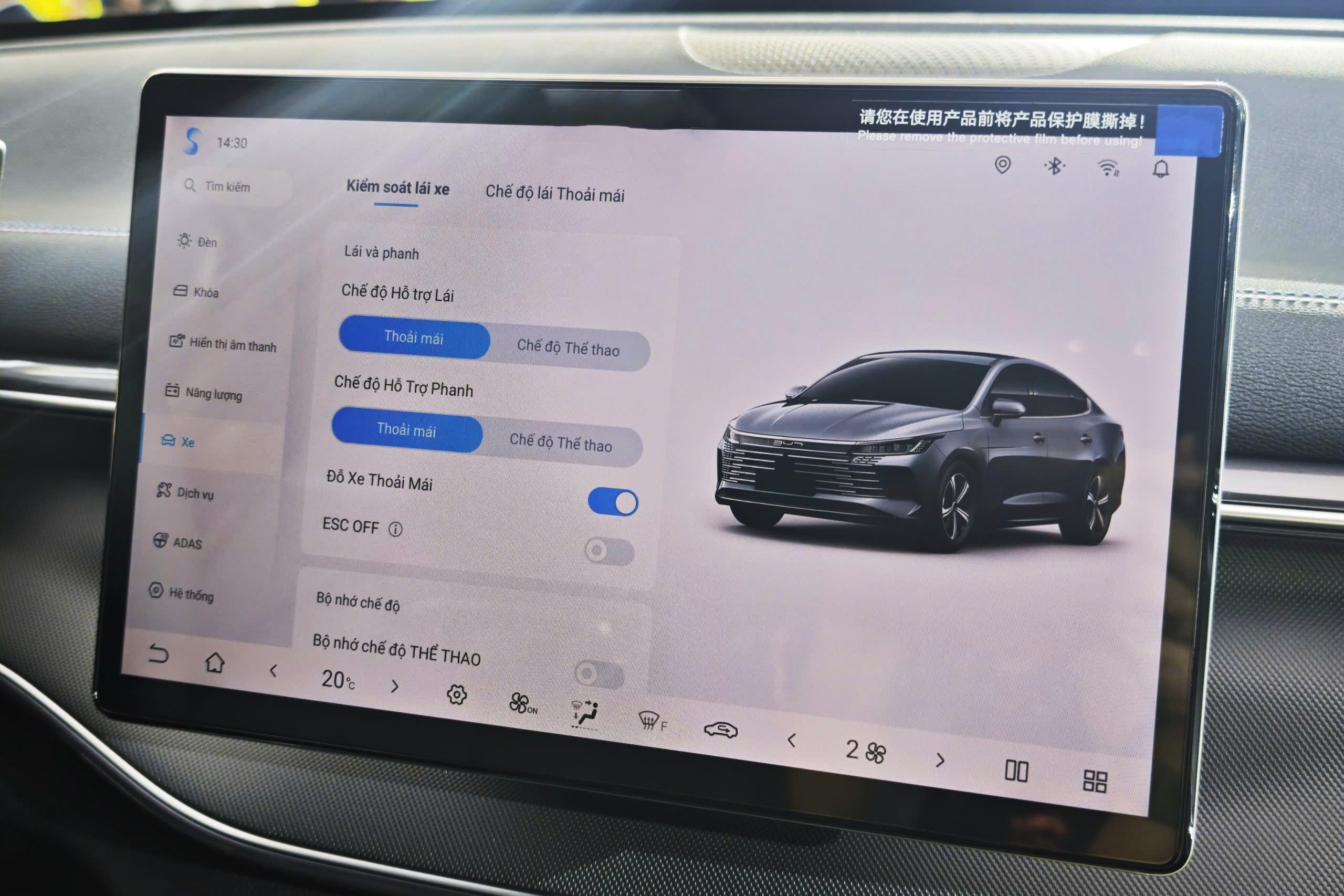
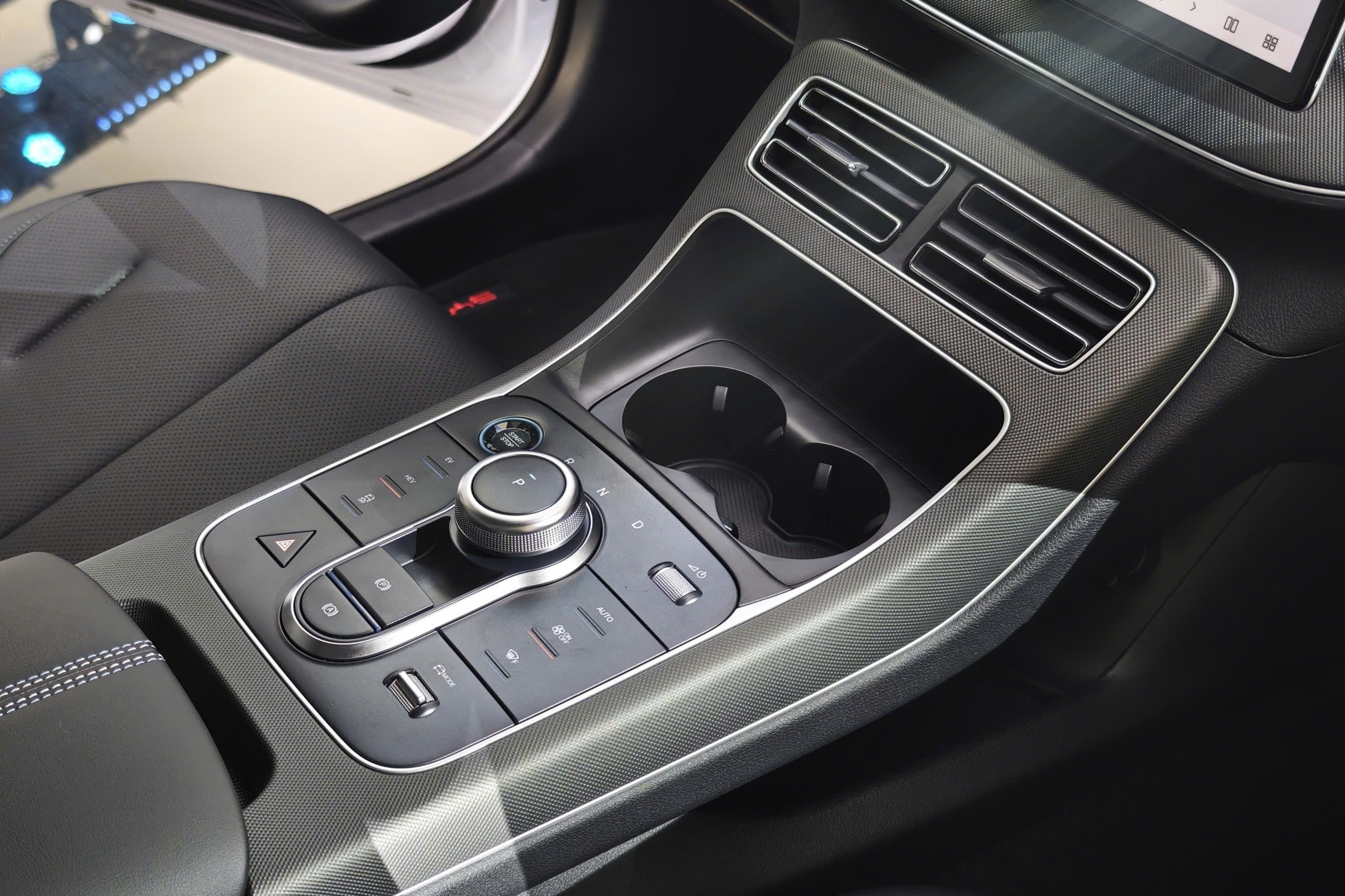
Performance and operation: convincing numbers on paper
The heart of the Seal 5 is a plug-in hybrid powertrain consisting of a 1.5L gasoline engine and a front-wheel electric motor, for a total capacity of 209 horsepower. This power unit, according to the announcement of BYD Vietnam, accelerates the car from 0-100 km/h in 7.5 seconds - an outstanding parameter when compared to most C-class gasoline sedans.
In keeping with the PHEV spirit, the Seal 5 can operate purely on electricity for up to 188 km per charge (test drive results provided by BYD Vietnam). When combining both resources, the combined driving range reaches 1,714 km, while the announced fuel consumption stops at 3.2 liters / 100 km. With a total weight of 2,030 kg, reasonable traction distribution and effective energy recovery during deceleration will be the key to reproducing these figures in real-world conditions.
The MacPherson strut front and torsion beam rear suspension, along with 215/55 R17 tires, are aimed at comfort and durability for urban and highway needs. In theory, the large weight can help the body stabilize at high speeds; on the contrary, it requires the brakes and tires to work more effectively when braking hard or cornering quickly. Users expect smooth transmission/transmission between the two power sources – a point of concern for PHEVs – but the actual level depends on operating conditions and software refinement.
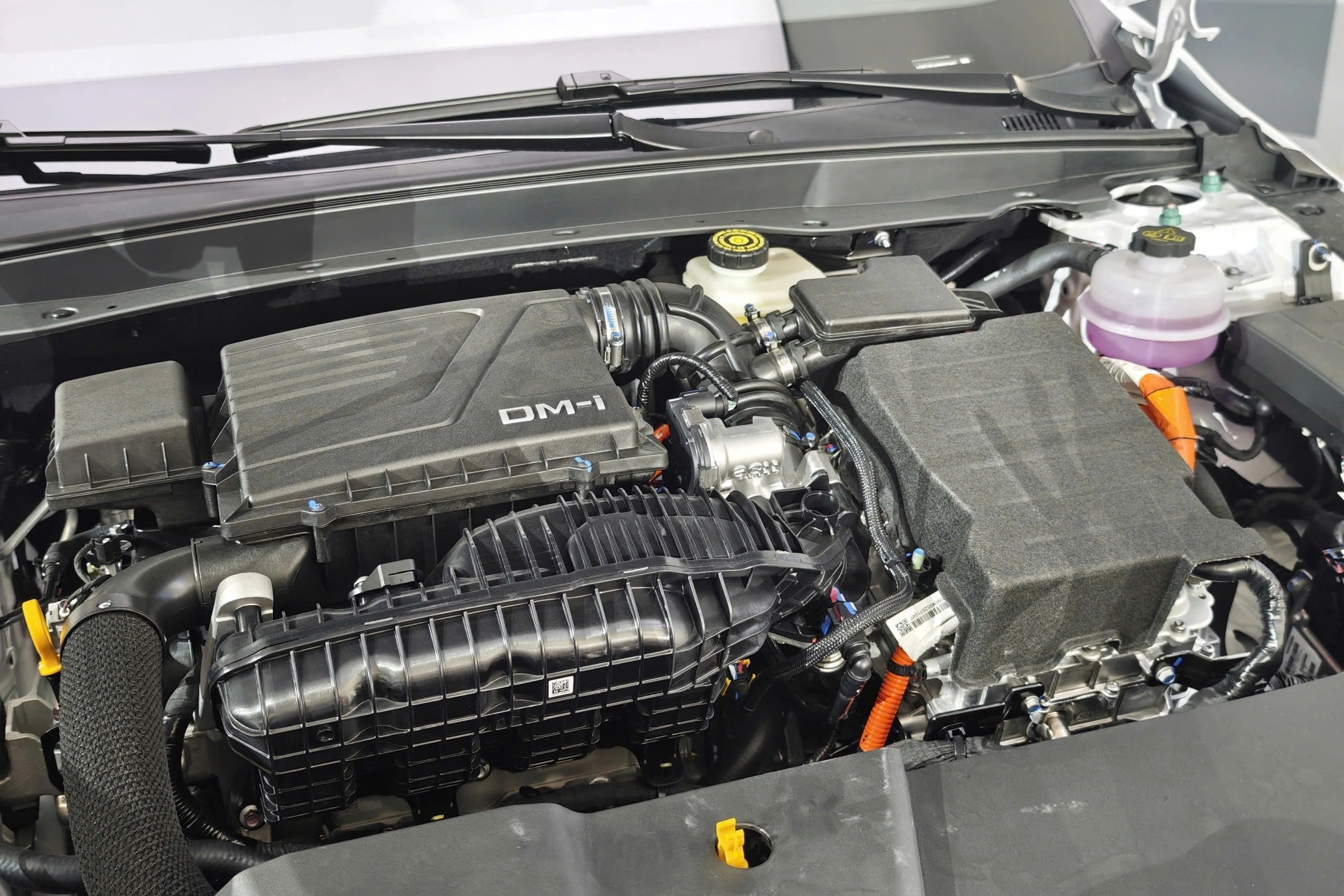
Safety and driver assistance technology
BYD has not yet announced the full list of driving assistance features for Seal 5 in the Vietnamese market. Popular technologies in the segment such as adaptive cruise control (ACC) Stop & Go, lane keeping assist or collision warning... if equipped, we need to wait for detailed information from the manufacturer. Safety ratings according to organizations such as ASEAN NCAP/Euro NCAP have not yet been announced, so users should follow the next announcements before making a decision.
Main technical specifications table
| Category | Parameter |
|---|---|
| Dimensions LxWxH | 4,780 x 1,837 x 1,497 mm |
| Wheelbase | 2,718 mm |
| Total weight | 2,030 kg |
| Transmission system | Plug-in hybrid, 1.5L gasoline engine + front-wheel electric motor |
| Total capacity | 209 horsepower |
| Acceleration 0–100 km/h | 7.5 seconds |
| Maximum speed | 180 km/h |
| Electric range | 188 km/charge (according to BYD Vietnam test drive results) |
| Comprehensive scope of operations | 1,714 km |
| Fuel consumption | 3.2 liters/100 km |
| Suspension system | Before MacPherson, after torsion beam |
| Brake | Front/rear disc |
| Rims/Tires | 17 inch; 215/55 |
Price, positioning and competition
The price of 696 million VND puts the BYD Seal 5 in the middle of the segment: higher than the Kia K3 (549-689 million VND), competing directly with the Mazda3 (599-739 million VND) and lower than the Honda Civic (789-999 million VND). The core advantage of the Seal 5 is the PHEV system, which offers low fuel costs and long-distance electric driving, while most competitors maintain traditional gasoline configurations. This could help the Chinese car differentiate itself in the context of saturated C-class sedans.
However, consumer habits, charging ecosystems and expectations for safety technology will be important variables. Seal 5 needs more time to prove its operational value and durability in real-life use in Vietnam.
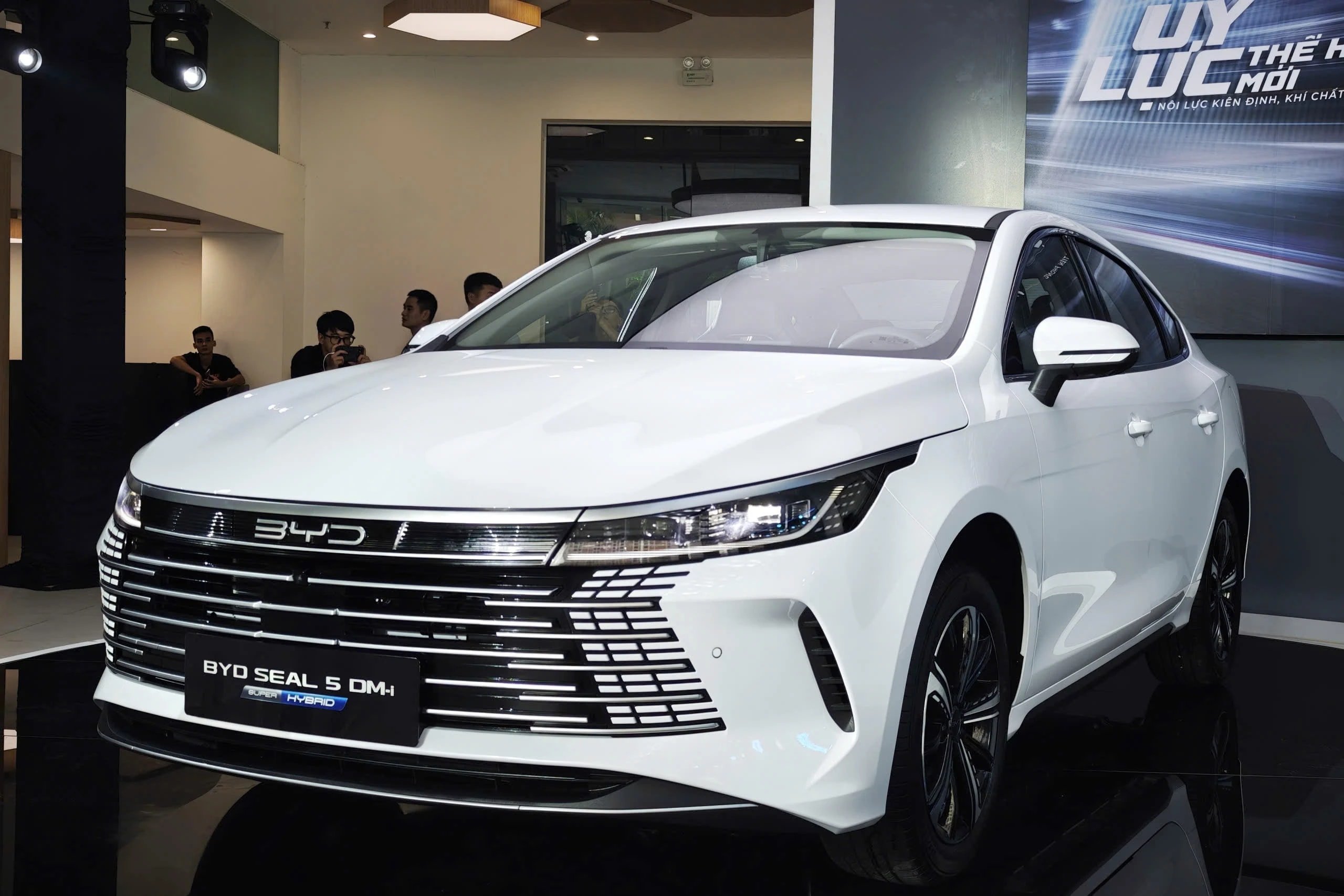
Conclusion: Differentiation by external charging hybrid technology
BYD Seal 5 PHEV bets on convincing parameters: 209 horsepower, 0–100 km/h 7.5 seconds, EV 188 km/charge and fuel consumption 3.2 liters/100 km. Outstanding design with large grille, sporty ducktail; modern interior, emphasizing convenience; suspension configuration and 17-inch wheels suitable for daily travel needs.
Pros: Efficient PHEV powertrain, long claimed electric range, good acceleration performance for the price, well-balanced mechanicals and competitive pricing. Potential drawbacks: Large 2,030 kg gross weight demands optimized handling; rear torsion beam suspension aims for simplicity and durability rather than sophistication; active safety features and independent evaluations still need to be clarified. For customers who want to experience plug-in hybrids at a mainstream price, the Seal 5 is a worthy choice.
Source: https://baonghean.vn/byd-seal-5-phev-sedan-c-lai-dien-gia-696-trieu-10308416.html



![[Photo] Collecting waste, sowing green seeds](https://vphoto.vietnam.vn/thumb/1200x675/vietnam/resource/IMAGE/2025/10/18/1760786475497_ndo_br_1-jpg.webp)

![[Photo] General Secretary To Lam attends the 95th Anniversary of the Party Central Office's Traditional Day](https://vphoto.vietnam.vn/thumb/1200x675/vietnam/resource/IMAGE/2025/10/18/1760784671836_a1-bnd-4476-1940-jpg.webp)
![[Photo] Closing ceremony of the 18th Congress of Hanoi Party Committee](https://vphoto.vietnam.vn/thumb/1200x675/vietnam/resource/IMAGE/2025/10/17/1760704850107_ndo_br_1-jpg.webp)





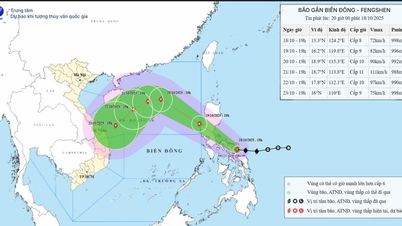










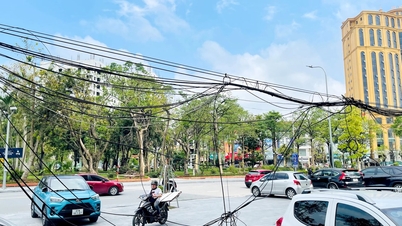










































































Comment (0)